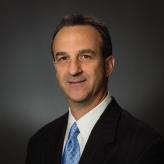ADF attorneys ask U.S. Supreme Court to review Forsyth County prayer case

WINSTON-SALEM, N.C. — Alliance Defense Fund attorneys filed a petition with the U.S. Supreme Court Thursday that asks the court to approve the historical practice of allowing citizens to offer prayers at public meetings according to the faith of the prayer-giver. ADF attorneys represent the Forsyth County Board of Commissioners, which has an invocations policy that is under attack by the American Civil Liberties Union and Americans United for Separation of Church and State.
“America’s founders opened public meetings with prayer; this county simply wants to allow its citizens to do the same,” said ADF Senior Counsel David Cortman. “We trust the U.S. Supreme Court will want to review this case because of the long history in America of offering prayers before public meetings. Public officials shouldn’t be coerced into censoring the prayers of those invited to offer them just because secularist groups don’t like people praying according to their own conscience.”
The board voted in July to ask the high court to review a decision by the U.S. Court of Appeals for the 4th Circuit that upheld a ban on prayers by clergy that may mention a particular deity prior to public meetings. ADF attorneys point out that the decision is in conflict with other federal court decisions and out of step with the history of invocations in America.
In the case Joyner v. Forsyth County, two judges on a three-judge panel for the 4th Circuit upheld a district court’s ruling against the county commission’s invocation policy, which allows invited clergy to offer prayers consistent with the dictates of their own consciences before the start of public meetings. The third judge on the panel, Circuit Judge Paul V. Niemeyer, strongly dissented from the ruling, writing in July that “the majority has dared to step in and regulate the language of prayer.”
Other federal courts have upheld similar invocation policies. The most recent example is a July 11 decision that upheld the invocations policy of Lancaster, Calif. Each of the four other federal courts to review similar policies since 2008 has found them to be constitutional.
In March 2007, ACLU and AU attorneys sued the Forsyth County Commission on behalf of three individuals because they claimed to be offended by simply hearing the invited speakers deliver prayers that included a reference to Jesus Christ or any other named deity. They demanded the county discourage or prohibit invited speakers “from including references to Jesus Christ, or any other sectarian deity, as part of their prayers.”
“Censorship is what the ACLU and AU are advocating. They don’t want private citizens invited by the board to express themselves according to the dictates of their consciences,” said ADF-allied attorney and co-counsel Mike Johnson, who argued the case before the 4th Circuit and is currently dean of Louisiana College’s Pressler School of Law. Bryce D. Neier and David Gibbs, two of nearly 2,100 attorneys in the ADF alliance, are also co-counsel in the case.
ADF is a legal alliance of Christian attorneys and like-minded organizations defending the right of people to freely live out their faith. Launched in 1994, ADF employs a unique combination of strategy, training, funding, and litigation to protect and preserve religious liberty, the sanctity of life, marriage, and the family.
Ref. 17484
Related Profiles

